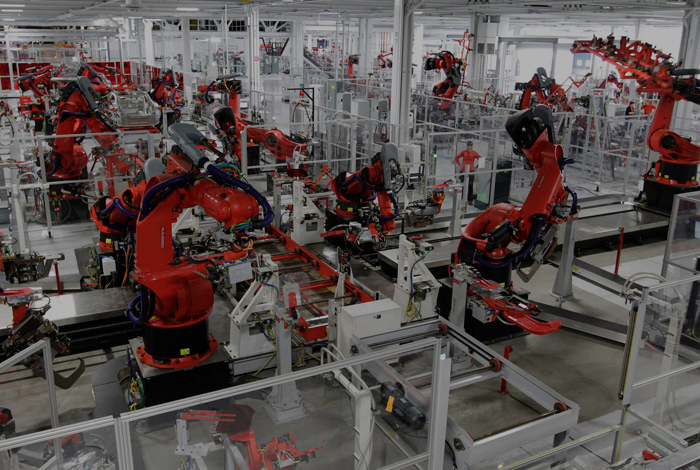Small Business Vouchers pilot a pathway to a clean energy economy
The U.S. Department of Energy (DOE) has selected 33 small businesses to work directly with DOE national labs to accelerate the transformation to a clean energy economy.

The U.S. Department of Energy (DOE) has selected 33 small businesses to work directly with DOE national labs to accelerate the transformation to a clean energy economy.
The U.S. Department of Energy (DOE) has selected 33 small businesses to work directly with DOE national labs to accelerate the transformation to a clean energy economy.
The selected businesses will be given access to world-class laboratory resources to help move these innovative ideas and technologies closer to the marketplace.
The department's Office of Energy Efficiency and Renewable Energy will invest nearly $6.7 million under Round 1 of the new Small Business Vouchers (SBV) pilot.
Small businesses across the nation provide a tremendous opportunity to accelerate America's clean energy economy. Small businesses develop innovative technology and produce more than 15 times as many patents per employee as larger patenting firms, according to the Small Business Administration's Office of Advocacy. Through these SBV projects, the department and its laboratories will gain valuable private sector insight into the technological and commercialization challenges facing the clean tech economy.
"The U.S. Department of Energy is firmly committed to maximizing the impact of the national lab system on the clean energy economy," said Dr. David Danielson, assistant secretary for Energy Efficiency and Renewable Energy. "The Small Business Vouchers pilot allows innovative entrepreneurs greater access to the world-class resources and brilliant minds in our labs. These partnerships can help small businesses solve their most pressing technical challenges -- and help bring clean energy technologies to commercialization much faster."
SBV is a collaborative, national effort that provides $20 million for U.S. companies to help improve industry awareness of national laboratory capabilities and provide small and mid-size businesses access to the resources available within the national laboratory system. Vouchers range from $50,000 to $300,000.
Spanning more than 20 states, the selected small businesses will work with scientists at nine department laboratories -- Oak Ridge National Laboratory, National Renewable Energy Laboratory, Lawrence Berkeley National Laboratory, Sandia National Laboratories, Pacific Northwest National Laboratory, Idaho National Laboratory, Los Alamos National Laboratory, Argonne National Laboratory, and Lawrence Livermore National Laboratory.
The companies were competitively chosen from a pool of hundreds of applications. Almost 40 percent of the businesses represent new DOE industry partnerships and relationships with the national labs. Building on the response of Round 1, the department will start accepting applications for Round 2 of the SBV pilot. A total of $13 million worth of funding remains; over the course of the year, up to 100 vouchers will be awarded.
For Round 1, the small businesses and laboratories will collaborate on advancing several clean energy technologies, including water, wind, bioenergy, solar, buildings, vehicles, fuel cells, geothermal technologies, and advanced manufacturing.
Winners
March 10 Round one of the DOE/EERE Small Business Vouchers Pilot (SBV) culminated with 33 vouchers awarded in 9 technical areas for a total of $6.7M, including five affiliated or working with Los Alamos:
- iBeam Materials, Inc. of Santa Fe, New Mexico. iBeam Materials seeks to disrupt the Lighting, Display and Wearable Electronics industries by creating new game-changing LED products.
- Amsen Technologies of Tucson, Arizona. Amsen will characterize its new polymer electrolyte membranes and evaluate against DOE targets for fuel cell applications. Results will optimize the development process of membranes for fuel cells.
- Sustainable Innovations of East Hartford, Connecticut. Sustainable Innovations will validate its unique and innovative multi-channel hydrogen fuel quality monitor through testing and performance characterization to optimize design.
- KWJ Engineering: Fabricate and deliver sensor and conduct product characterization to develop the next generation of gas-sensing system for hydrogen and other gases.
- Treadstone Technologies of Princeton, New Jersey. Treadstone will analyze the potential for deploying its patented coating and processing technologies in the electrolyzer and battery markets. This work will contribute to low-cost, metal bipolar-plate manufacturing processes and quality control system development.
Round 2 and 3
The U.S. Department of Energy (DOE) awarded nearly $7M in SBVs in Round 1. Approximately 50-60 vouchers remain for Rounds 2 and 3 of the SBV Pilot.
Round 2 is open March 10 - April 10, 2016. All requests are due by 11:59 P.M. EDT on April 10.
Key dates and timeline:
- March 10, 2016 - Round 2 Request for Assistance (RFA) Opens
- April 10, 2016 - Round 2 RFA submission closes, 11:59 PM Eastern Daylight Time
- Mid-Late June, 2016 - Notification of semi-finalist selections
- Late June-Early July 2016 - Semi-finalists work with lab staff on statement of work
- Mid-Late July 2016 - Finalists notified for final award negotiation
- August 2016 - SBV work can begin





